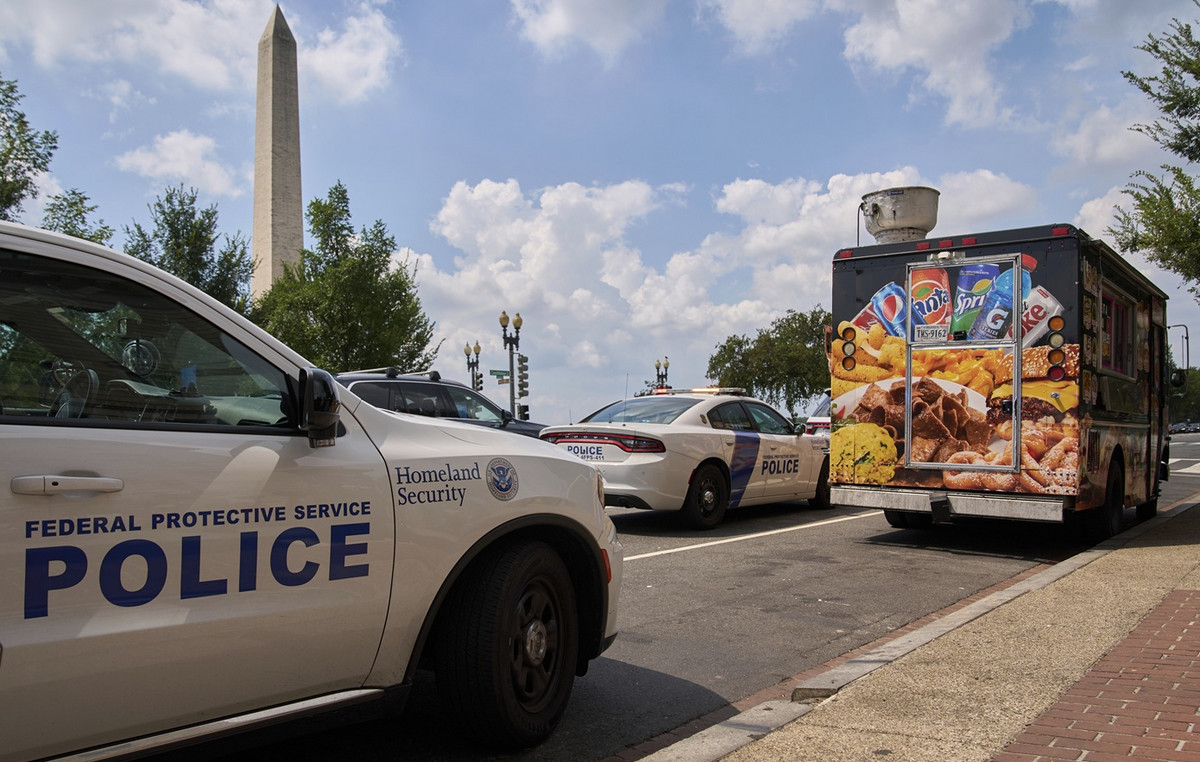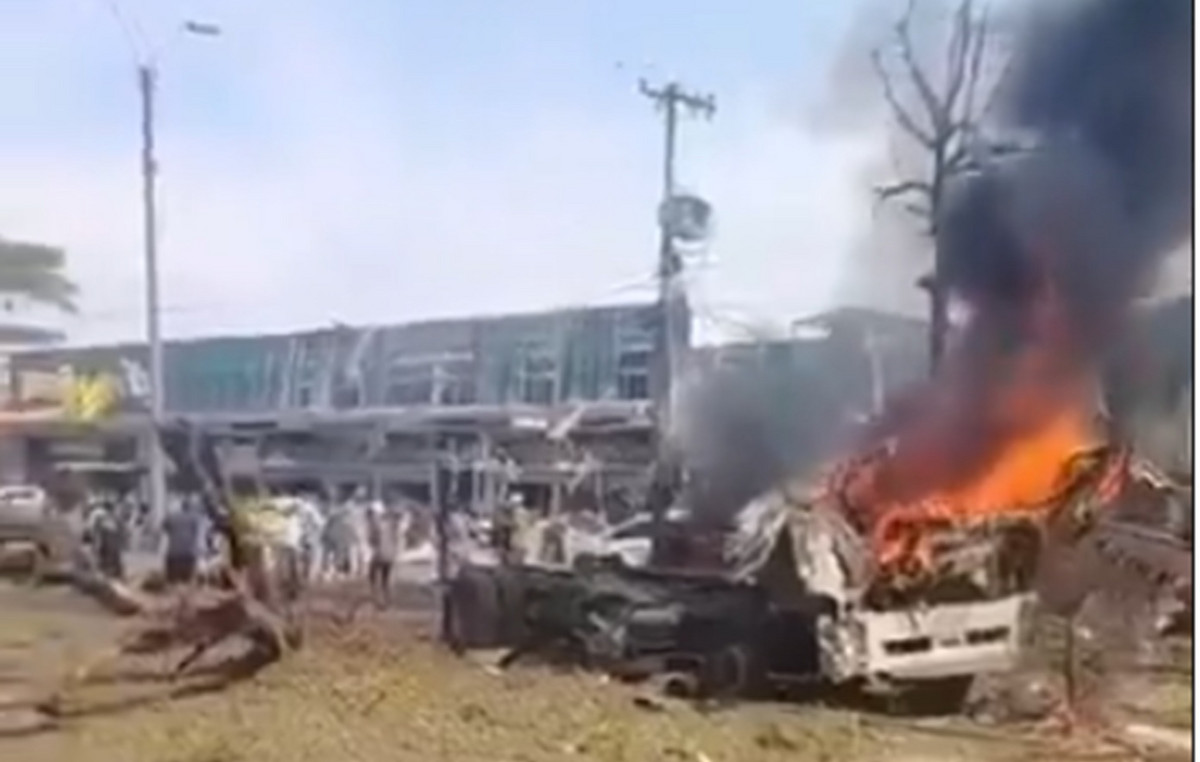At the train station in Lviv, a city in Ukraine’s westernmost corner near the Polish border, hundreds of people are getting off trains, disembarking as sirens blare.
The terminal, one of Europe’s most historic Art Nouveau structures, is now a crossing point for those displaced by the war, who try to put hundreds of kilometers between them and an invading Russia as they approach the NATO frontline.
It was unthinkable to many that the historic cultural center could become a target for Moscow – including the diplomats and international organizations who fled the Ukrainian capital Kiev for Lviv in recent weeks. Follow the special coverage of CNN.
But when the sirens sounded, it was a chilling reminder that nowhere in Ukraine is safe from Moscow’s all-out assault on the country.
There was a faraway look on people’s faces. Most moved nonchalantly in the courtyard outside the station, even when the sirens blared.
A family piled blankets over their baby in a stroller. Two women dressed a pink knit sweater on a French bulldog that was shivering. Several other families sat together, barricaded by large suitcases and plastic bags. They said they hadn’t slept in days because of the bombing that destroyed the regions they left.
They traveled to Lviv from cities and towns across the country, quickly packing backpacks and gathering some belongings before fleeing their homes.
Still suffering from the violence, many say they don’t know where to go next. It is an issue that has been complicated by a new implemented Ukrainian martial law. Among other restrictions, the law prohibits men between the ages of 18 and 60 from leaving the country.
Families considering crossing the Ukrainian border have to deal not only with the trauma of becoming refugees, but also with the prospect of being separated from their children, brothers, husbands and partners.
Artem Zonenko has just arrived in Lviv from Kiev with his mother-in-law and young daughter. They spent the night sleeping on the floor of a subway station, protecting themselves from bombing in the Ukrainian capital. His wife was in Lviv a few days ago. The family plans to spend a day together before deciding whether grandmother, mother and daughter will continue on their way to Poland, leaving Zonenko behind.
Asked how he felt about that, he gave a desperate smile. “I’m not sure what to tell you. It is what it is,” he said, loading his family into a cab.
The United Nations High Commissioner for Refugees UNHCR said at least 100,000 people left their homes in the first 24 hours of the military attack on Thursday. State media and eyewitnesses said more than 7,000 cars lined up at crossings on the Polish border, which divides the countries by stretching more than 30 kilometers.
Andrei, 45, looked away as he took a long drag on his cigarette. He had just arrived from his hometown of Odessa in the southeast and was planning to meet his Belarusian wife in Poland. “She is pregnant. I need to go to her,” he said, refusing to release his full name for security reasons. “This law makes no sense.”
The government announced the general mobilization order – which included a ban on men’s travel – while he was on the train. It’s an unexpected situation that could change his family’s future, he said. “And then [nós] We got off the train and the sirens rang,” he says. “I was shocked because we weren’t even told where to hide. I was shocked because this place should be safe.”
“And now we’re told we can’t even leave the country, while migrants can,” he gestured to a group of foreigners nearby. “I ask you, is this fair?”.
For migrants arriving in Lviv, the destination is certain – Poland or any neighboring state that receives them.
“I don’t know where to hide because nowhere is safe,” says Mehmet, a Turkish resident of Ukraine, dragging two large suitcases along the sidewalk as sirens blared. “We’re just going to leave the country.”
A group of Algerian university students from Odessa were frantically discussing their plans. “We’re just going to Poland,” said Takieddine, who asked not to be identified for security reasons. “There is no way we can stay in Ukraine.”
“We never thought this would happen in Europe. Never. Not in a million years”.
Ihor Nakonechyi, 52, is in the border town of Mostyska making preparations to transport his ex-wife and daughter to Poland. He plans to drop them off at the nearby border and then return, not just because the law forbids him from leaving the country, he says, but because he “can’t wait to get a gun” and join the fight against Russian forces.
“It’s difficult […] but I don’t mind the law. In fact, I think this is the right thing to do.”
Journalist Roman Tymotsko contributed to this story.
Source: CNN Brasil
I’m James Harper, a highly experienced and accomplished news writer for World Stock Market. I have been writing in the Politics section of the website for over five years, providing readers with up-to-date and insightful information about current events in politics. My work is widely read and respected by many industry professionals as well as laymen.







